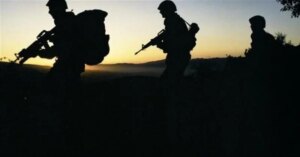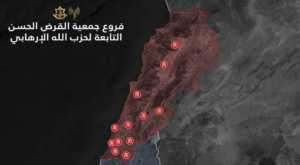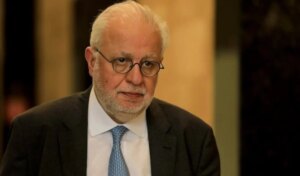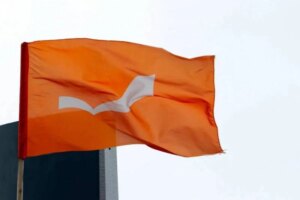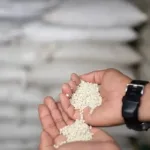
Beirut Airport Reflects Lebanon’s Deep Political Divide
Rafic Hariri International Airport witnessed two completely contrasting scenes in just a few hours, highlighting the deep division within Lebanon’s society and political landscape.
🔹 One side: A political parade by Hezbollah supporters, arriving from Iran via Iraq, chanting slogans and attempting to display portraits of Sayyed Hassan Nasrallah throughout the airport.
🔹 The other side: A celebration of national pride, as the Lebanese Junior Women’s National Football Team returned home after winning the Asian Cup, filling the airport with joy and raising Lebanon’s name high.
These two moments symbolize the struggle over Lebanon’s identity—one driven by sectarian politics and regional influence, the other by unity, progress, and national achievement.
A Show of Loyalty or a Political Statement?
When Hezbollah supporters arrived, they chanted slogans such as:
🗣️ “We are at your service, Nasrallah”
🗣️ “Humiliation is out of the question”
They accused airport security personnel of following Israeli and American orders, portraying state institutions as betrayers. Their insistence on raising Nasrallah’s portraits led to tensions with authorities, turning the airport into a political battleground rather than a public facility.
A Different Lebanon: Pride in Sports and Achievement
In stark contrast, hours later, Lebanese athletes returned home to cheers and national pride.
🏆 The Lebanese Junior Women’s Football Team had just won an historic victory at the Asian Cup, bringing a moment of joy to a struggling nation.
🎉 The airport was filled with celebrations, national flags, and chants of pride—a stark contrast to the earlier political confrontation.
This scene represented a Lebanon that aspires for progress, defined by sports, culture, and national pride, rather than sectarian loyalty and ideological conflicts.
Two Competing Visions for Lebanon
Journalist Tony Boulos reflected on the duality of these two events, stating:
📢 “This is Lebanon divided between two projects: One seeks to turn Lebanon into an Iranian satellite, while the other embraces openness, culture, and global recognition.”
He explained that:
- Hezbollah’s Lebanon aims for regional isolation, treating Beirut Airport as an extension of Tehran’s Khomeini Airport.
- The real Lebanon is about progress, life, and cultural achievements, where sports, arts, and innovation define national success.
📢 “One side wants Lebanon dragged into dependency, while the other wants it recognized for its achievements on the world stage.”
Sports City: From National Symbol to Political Parade Ground?
The division is not limited to the airport. Sports City, originally built by President Camille Chamoun and later restored by Prime Minister Rafic Hariri, is now being repurposed for political rallies.
📌 Historical events held at Sports City:
✔️ 2000 Asian Championship
✔️ Pavarotti’s 2002 concert
📢 However, Boulos criticized its current use for partisan gatherings, arguing that:
💬 “Instead of being a national sports hub, it is being turned into a sectarian parade ground.”
This, he says, is another attempt by Hezbollah to assert dominance over Lebanon’s public institutions.
Hezbollah’s Influence: A Shift in Loyalty?
Chants at the airport, such as:
🗣️ “This is our country, this airport is ours, and Sayyed Hassan is our leader”
According to Boulos, this reflects:
📌 A shift in allegiance from the Lebanese state to Iran’s Velayat-e Faqih ideology.
📌 A belief that Lebanon’s institutions should fall under Hezbollah’s control.
Accusations of Treason: A Recurring Narrative
When airport security intervened, Hezbollah supporters accused them of following “Israeli and American orders”.
📢 Boulos debunked these accusations, stating:
💬 “These are the same people who sought a ceasefire in the last war and who approved border agreements with Israel.”
He argues that Hezbollah uses accusations of betrayal to justify its clashes with state institutions whenever challenged.
What Kind of Lebanon Do We Want?
🛑 What happened at the airport was not just a single event—it was a reflection of a larger battle for Lebanon’s future.
Two choices lie ahead:
✅ A Lebanon that celebrates progress, sports, arts, and culture.
❌ A Lebanon controlled by sectarian loyalty and regional influence.
🚨 The future of Lebanon is at a crossroads.
💬 Will it be a nation of openness and achievement, or will it remain trapped in ideological conflicts?
📢 The choice is in the hands of the Lebanese people.




